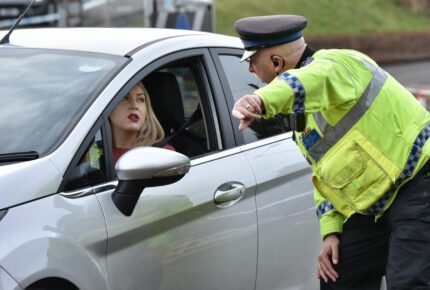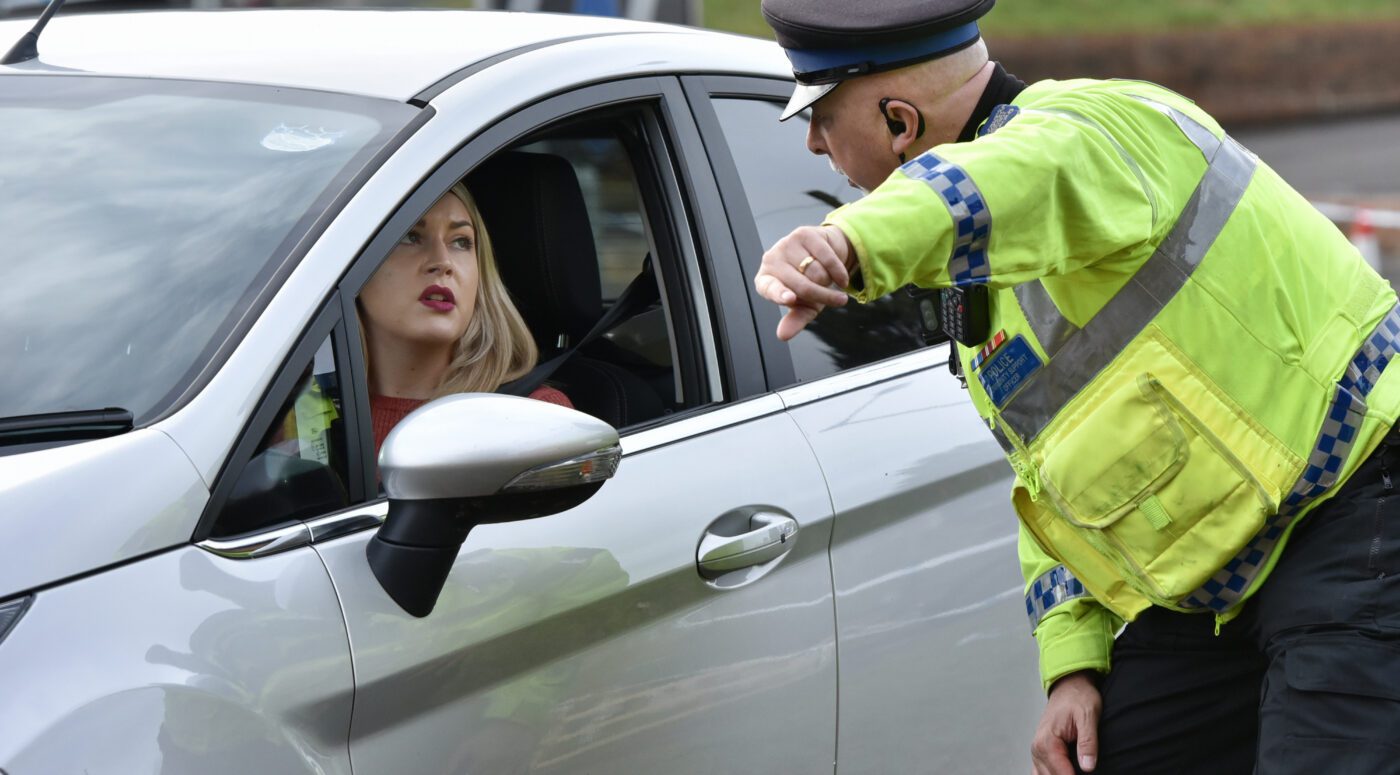

A staggering 86,000 British drivers are banned from driving every year, and with many driving bans being for multiple years, that means that there are hundreds of thousands of banned drivers in the UK at any one time. Unfortunately, many of these drivers elect to continue driving whilst disqualified, putting themselves and other road users at risk. If you have made the decision to drive whilst banned for any reason and have been caught doing so, you are probably wondering what happens next and what any potential additional punishments might be. In this article, we look at the offence of driving whilst disqualified and examine what it means to be a ‘strict liability offence’ in this regard. We also look at the potential sentences and other punishments you might face if you are caught, and we outline where you can get legal representation to help you with your defence in court (if it gets that far).
What is the offence of driving whilst disqualified?
The offence of driving whilst disqualified is relatively straightforward and is, for the most part, exactly what it sounds like. If a driver is disqualified from driving (meaning they are banned from driving on the road or in other public places) and they do drive a motor vehicle, they will be found guilty of an offence under Section 103b of the Road Traffic Act 1988.
Note that in the case of a ‘partial’ disqualification, i.e. one that applies only to a certain class of vehicles, a driver will be found guilty only if he or she is driving that class of vehicle. If he or she is driving on a road or public place in a motor vehicle for which he or she still maintains a valid licence without disqualification, then there is no offence.
It is important to note that driving whilst disqualified is what is known as a ‘strict liability’ offence in that there are no defences available; if you are caught in the act of driving whilst disqualified, you will face the legal consequences regardless of the reason for your decision.
This is the case even if you are only driving whilst disqualified because of some personal emergency that you must attend to (such as taking someone to hospital, escaping harm, trying to rescue someone, and so on). In those cases, there is a chance the judge will take the situation into account and potentially lessen your sentence, but there is no guarantee.
The only possible way for you to defend yourself against a driving whilst disqualified charge is to show that, in fact, you were not subject to a disqualification at the time of the offence. This is, of course, a rare situation and would only really occur in the case of a mistaken identity or an error on the Driver Vehicle and Licensing Authority (DVLA) records that the police have access to.
What happens if you are caught driving whilst disqualified?
It is likely to be the case that the police pull you over at the side of the road if they run your number plate and discover that you are disqualified from driving (or simply if they recognise you as a banned driver, in some small towns).
Once pulled over, the police are likely to ask you to confirm whether in fact you are banned from driving. At the same time, they will be running checks on your driving record from their police computer in their police car. If the check comes back and does indeed confirm that you are disqualified from driving, the police will have the details of the ban, including any class of vehicle ban if applicable.
Upon this confirmation, the police are able to arrest you for driving whilst being disqualified. You will be taken to the police station where they will process you in the custody suite. This involves asking you questions about your identification (name, address, etc.), taking photographs, and asking you questions. It is likely the police will take a DNA sample for their records and you will also undergo a body search to ensure you are not in possession of any contraband. You will be given a phone call to let someone know what is happening, and you can call a lawyer at this point if you have one selected in advance.
During your interview, the police will ask you about your driving record and the events of the day that lead to your arrest. You are entitled to a solicitor at this point and do not not have to proceed without one. Even though the offence is one of strict liability, the police will still likely want to know why you were driving that day.
After the interview, the police may release you under investigation (the new regime that replaced bail in most cases) until your court date if you are not considered a danger to yourself or other people. If you are considered such, they will detain you until your court date and escort you to the court building on the day.
What is the driving whilst disqualified sentence?
The maximum sentence that you can face for driving whilst disqualified is 6 months’ custody. The minimum sentence that you can face is a fine. In between, the judge may decide that a fine, a community order, or a custodial sentence of less than 6 months is appropriate.
In addition to this punishment, you are also highly likely to receive an additional length of driving disqualification, ranging from 3 months in the least serious cases to 18 months in the most serious cases. This amount will be added to any existing ban: the two bans cannot run alongside each other. In the least serious of cases, the judge may offer you 6 penalty points on your licence instead of a further driving ban.
The exact sentence that you will be given depends on the seriousness of the offence, where the judge will assess both your culpability (blameworthiness) in the offence as well as the level of harm involved in the offence.
What factors impact a driving whilst disqualified sentence?
The judge in your case will have complex guidelines to work through when deciding your sentence. Not everybody gets the same sentence, and much depends on your personal situation and the circumstances of the crime. At the end of the day, the judge is trying to come to a considered and fair punishment taking into account all the factors of the events, your personal situation, and anything else you or your legal team raises in court.
According to the Sentencing Council’s sentencing guidelines for this offence, driving factors that can make a judge give you a harsher punishment (‘aggravating’ factors) include:
- Driving shortly after disqualification imposed
- Vehicle obtained during disqualification period
- Driving for reward
- Significant distance driven
- Evidence of associated bad driving
Similarly, more general factors that can influence a judge towards giving a harsher punishment include:
- The offender having previous relevant convictions (other driving offences, for example)
- The offence being committed whilst on bail
- The offender failing to abide by current court orders (other than the one for which they have been tried in the case at hand)
- The offence being committed whilst the offender was on licence or post sentence supervision
- The offender carrying passengers at the time of the offence
- The offender giving false details to the police while stopped or arrested
On the flip side, there are some factors that will reduce the severity of any sentence given (‘mitigating’ factors).
Relating to driving specifically, these include situations that are the opposite of the aggravating factors (such as the driver not driving for reward, or the driver not otherwise driving badly). Relating more generally to the offender, these include:
- The offender having no previous convictions nor any relevant/recent convictions
- The offender having good character and/or exemplary conduct
- The offender showing remorse, regret, shame, or similar feelings about their actions
- That there was a genuine emergency at the time of the offence (for example, if the driver was only driving whilst disqualified to take their loved one to Accident and Emergency at the hospital)
- The offender’s particularly young age and/or lack of maturity
- The offender suffering from a serious medical condition requiring urgent, intensive, or long-term treatment
- The offender being the sole or primary carer for dependent relatives
Once these factors are set out, the judge will make a balanced decision based entirely on the facts as proven in the case.
Where to get more help?
If you have been charged with the driving whilst disqualified offence, having the right legal representation in place as early as possible is a smart move. Not only does having an experienced solicitor by your side help you through the stress and anxiety of this process, but it could also mean that your case gets thrown out before it even gets to court. Get in touch with the motoring offences experts at Stuart Miller Solicitors today for a free consultation.

